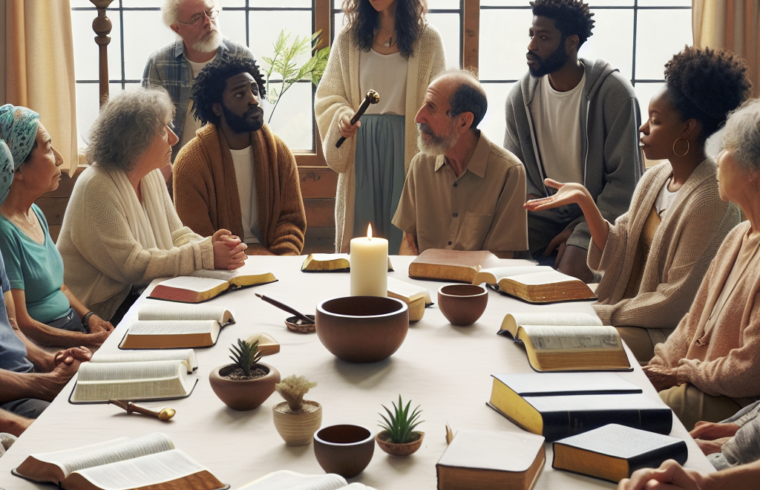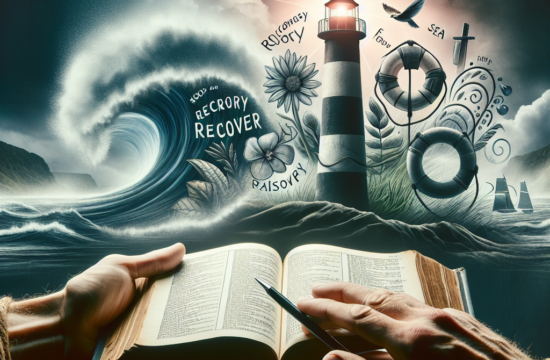==> Thank you for reading this post! Click Here If you are looking for support and Victory over PTSD.
Hey there! Today, I want to share with you some insights on how Biblical trauma healing workshops can profoundly impact our lives. Having been through the process myself, I truly believe in the transformative power of these workshops. They break down the healing journey into digestible, impactful areas that resonate with our faith and personal experiences. Let’s dive into the five key components that I found to be most significant during my journey.
Understanding Trauma in a Biblical Context
Defining Trauma
First off, let’s talk about what trauma really means. It’s not just about the big, dramatic events like war or abuse; it can be a series of smaller, chronic stressors that build up over time. In a biblical context, we often see examples of trauma, from Job’s suffering to the Israelites’ oppression in Egypt. These stories remind us that trauma is not new; it’s part of the human experience.
Recognizing trauma as part of our spiritual journey allows us to confront our own experiences with compassion. Knowing we’re not alone in our struggles is comforting, especially when we read scriptures that speak to human suffering — it ties us back to our faith and understanding.
As we unpack trauma, it’s crucial to understand that, biblically, it’s acknowledged as a valid part of our existence. This understanding can be a solid foundation as we begin the healing process.
The Biblical Perspective on Healing
When I attended my first workshop, I was blown away by the focus on healing through scripture. The Bible offers countless verses that speak of healing, restoration, and hope. For instance, Jeremiah 30:17 assures us that God will restore our health, emphasizing that healing is not only possible but promised.
During these workshops, facilitators often lead us in discussions about God’s character as a healer. Reflecting on these attributes can help us reshape our understanding of our own hurt and the steps we can take toward healing.
Applying biblical principles to our trauma also encourages a deeper reliance on faith. Remembering that God is with us “in the valley of the shadow” can offer immense comfort as we navigate through our pain.
Creating a Supportive Community
One of the most impactful aspects of these workshops is the sense of community that develops. Sharing our stories with others who genuinely understand can be incredibly liberating. It feels good to know that others have walked similar paths.
The workshops usually foster an atmosphere of safety and support, allowing us to express our feelings openly. This open sharing cultivates trust and bonds that make the healing journey feel less daunting.
Plus, having a community of faith around you can be a game-changer. They pray for you, encourage you, and hold you accountable — it’s like having a built-in support system that’s created around shared faith and experiences.
Emotional Processing through Faith
Identifying Your Emotions
One thing I found super helpful is learning to identify my emotions. We often don’t give ourselves permission to feel what we truly feel, thinking it’s a sign of weakness. But I learned that God wants us to lay our burdens down and be real with Him.
Workshops encourage participants to express their emotions in a safe space. Through scripture, we explore the emotional responses of biblical characters, which can lead us to a place of understanding and validation of our own feelings.
Allowing myself to feel pain, anger, or sadness in a safe environment has been pivotal for my healing. It’s about breaking down those walls and saying, “Yeah, this hurts. And that’s okay.”
Forgiveness and Letting Go
Forgiveness is often a tricky subject, right? We know it’s crucial, both for our spiritual growth and mental health. Still, figuring out how to let go of deep-seated hurts isn’t easy. In these workshops, I learned that forgiveness isn’t a feeling — it’s a choice.
Through guided exercises and discussions with others, I realized that forgiving doesn’t mean condoning what happened to us. It’s about freeing ourselves from the chains of resentment and starting our own healing journey.
Addressing forgiveness in a biblical framework reinforced that Christ calls us to forgive, not just for others but for our own peace. It’s liberating to understand that forgiveness can be a step toward healing, allowing God’s grace to flow into our lives.
Seeking God in Prayer
Prayer is a powerful tool in the healing process. I remember our leaders encouraging us to develop a consistent prayer life. Connecting with God through prayer felt like having a direct line to the ultimate source of comfort and guidance.
Get Support and Help with Recovery! Visit us for more Information and Support
In my workshops, we focused on different prayer techniques, from reflective prayer to intercessory prayer. Each method helped me draw closer to God and express my pain, hopes, and needs in a more personal way.
Seeing prayer as a way to build a relationship rather than just a checkbox on my spiritual to-do list made a significant difference. It prepared my heart and mind to receive healing and allowed me to surrender my trauma to God.
Integrating Biblical Lessons into Daily Life
Daily Scripture Reflection
A huge takeaway from the workshops was the encouragement to incorporate daily scripture reflection into my life. The Bible is filled with healing messages, and revisiting these verses has helped shape my mindset.
By starting each day with a verse, I set the tone for my heart and mind. The mornings became a sacred time for me to reflect on God’s promises and prepare myself for the challenges ahead. It’s like a daily dose of spiritual medicine.
This practice not only rejuvenates my spirit but also deepens my understanding of healing through faith. The more I dig into the Word, the more I realize how each scripture amplifies God’s desire for us to heal and thrive.
Practicing Gratitude
In the workshops, we explored the transformative power of gratitude. Shifting our focus from what’s broken or painful to what we’re thankful for can create space for joy and healing. Seriously, gratitude can flip our perspective!
Writing down things I’m grateful for each day has helped me cultivate a more positive mindset. Even on tough days, identifying small blessings can remind us that God is present in our lives, actively pouring out goodness, even amidst our struggles.
This practice isn’t about denying pain; it’s about acknowledging that there is also beauty alongside it. It’s a gentle nudge to keep looking for hope, even when things feel heavy.
Community Involvement and Service
Finally, I learned the importance of getting involved in community service as part of my healing journey. Serving others not only provides an external purpose but also allows us to put our faith into action. It reminds me that we’re called to love others as part of our healing.
Whether it’s volunteering at a local food pantry or participating in church outreach programs, giving back can provide immense joy and fulfillment. It’s a powerful way to connect with others and a reminder of God’s love for us.
Plus, seeing others’ struggles can bring perspective to our own. It’s a poignant realization that we all have a part to play in healing, both individually and as a community. We uplift each other and grow together in faith!
FAQ
1. What are Biblical trauma healing workshops?
These workshops focus on healing trauma through the lens of faith and scripture. They provide a space for individuals to explore their personal experiences while connecting with biblical narratives of healing and restoration.
2. How can these workshops benefit me?
They can provide a supportive environment to process and share your trauma, learn about the biblical perspective on healing, foster emotional processing, and help integrate lessons into everyday life.
3. Do I need to have a lot of biblical knowledge to participate?
No, these workshops are designed for everyone, regardless of your background. You’ll be guided through the lessons, and it’s perfectly fine to come with questions and a willingness to learn.
4. Is forgiveness emphasized in these workshops?
Absolutely. Forgiveness is a crucial part of the healing process, and workshops provide tools and discussions to help participants explore and approach forgiveness in a healthy way.
5. How do I continue my healing journey after the workshops?
Continuing your healing journey can involve daily scripture reflection, practicing gratitude, getting involved in community service, and maintaining connections with the new friends you made during the workshops. It’s about integrating what you’ve learned into your daily life!













